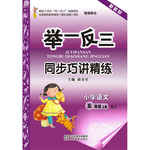题目内容
—Are you going to Tom’s birthday party?
—________.I might have to work.
A.It depends B.Thank you
C.Sounds great D.Don’t mention it
A
【解析】句意:——你将参加汤姆的生日晚会吗?——看情况吧?我可能要工作。考查情景交际。通过I might have to work.可知,说话者不一定能去汤姆的生日晚会。所以选A,其他三个选项都不符合题意。

练习册系列答案
 举一反三同步巧讲精练系列答案
举一反三同步巧讲精练系列答案 口算与应用题卡系列答案
口算与应用题卡系列答案 名师点睛字词句段篇系列答案
名师点睛字词句段篇系列答案
相关题目